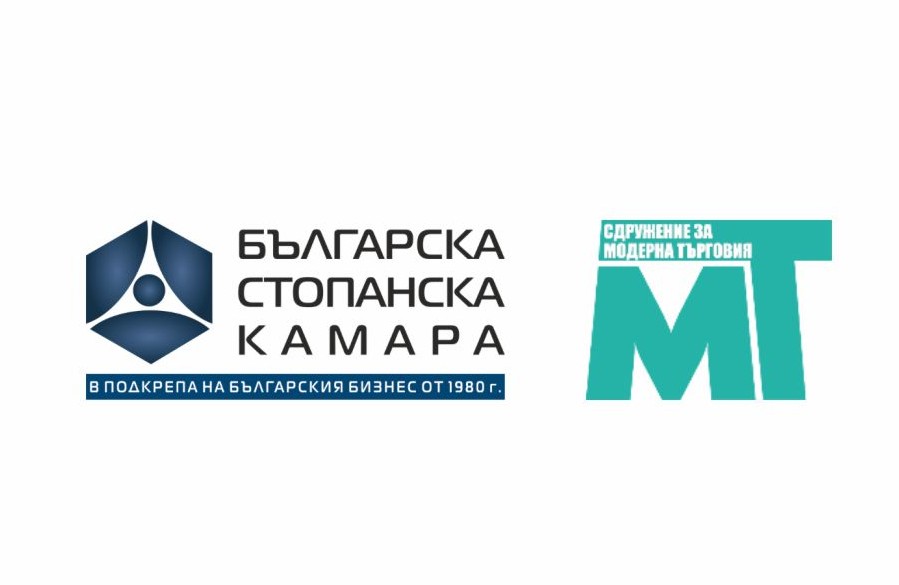The Association for Modern Trade (member of BIA) calls for lifting the measures which limit the activities of large non-food stores after April 11th, 2021, incl. the large shopping centers, "malls" and "retail parks" which are scheduled to re-open on May 1st. This will put an end to the financial complications for some of the companies and will limit the deepening crisis in the non-food retail sector caused by the enforced lockdown. The re-opening of stores will have a preserving effect on the entire ecosystem of retail-related businesses and state budget revenues. This measure will not lead to an increase in the spread of COVID, as large retailers and the shopping center management have proven that they strictly comply with the anti-epidemic regulations.
The measures are leading to a deepening crisis in the retail sector
The restrictions, which were first imposed on March 18th and then further extended on March 30th, lead to severe economic consequences not only for the traders, but all agents related to the retail sector - suppliers of goods, logistics, security, and facility management companies, etc. All of them are in a state of shock - during lockdowns, costs of the companies remain almost the same, whereas their revenues are reduced to the bare minimum. Moreover, the pandemic necessitated additional disinfection costs so that shops and malls could be safe to shop and work. This significant financial item is entirely at the employer's expense and is in no way compensated by the state.
The situation is particularly difficult for retailers who have stores in large malls and retail parks, and especially for those operating only there. In the last year, these malls have been closed for approximately 100 days, including during peak periods such as Christmas. As a result, traders reported huge revenue declines and were forced to lay off employees.
A new extension of the lockdown will inevitably lead to a chain deterioration of the financial situation of many companies in the sector, to increased intercompany indebtedness and unemployment, as a possible layoff of employees would enable the operation of the business and generate positive results. What is important to note - more than 10,000 people are employed in this segment of the retail sector alone and these measures affect more than 10,000 households.
There will be negative effects on the state budget as well. Firstly, the revenues will drastically decline, as the companies in this industry work fully "in the light" and pay taxes and social security contributions on their actual income and salaries. Second, that budget expenditures increase because the businesses are completely closed and generate no turnover, they are forced to lay off employees or put them on unpaid leave, in which case it is normal to expect compensations from the state.
The state must compensate and support the companies in the sector
Unlike SMEs, large traders can only benefit from the "60:40", "Employment for you" and "Save me" measures, which provide compensation and support in terms of labor costs and keeping the teams. At the same time, with almost zero revenues, all their other costs continue to flow, which has very serious consequences for the business. The AMT, therefore, calls for fair treatment of all commercial entities, small or large, by ensuring that they are equally treated. The specific proposals of the Association are:
- The scope of the measure "Support through working capital for SMEs" by the NRA, which provides support for closed SMEs in the amount of 10% of turnover without VAT, be extended to large companies.
- The scope of the measure "Support for medium-sized enterprises" by the Operational Program "Innovation and Competitiveness" should also be extended to large enterprises.
- To expand the scope of the "Keep me" program so that it can include employees of the closed sites, who are currently not entitled to compensation under the measure. These are lawyers, financiers, employees for remote customer service, security, maintenance, and so on.
- Reduction of building tax and garbage fee for the period of the site lockdown;
- Freezing tax payments for the period of site shutdown;
- Exemption of the affected companies from profit tax for 2021.
The severe economic consequences are not justified by health in terms of
The renewal of the activity of the big stores will have a positive health effect, as it is possible to establish the necessary distance between the shoppers. Prior to the lockdown in December, leading retailers have already shown that they have the capacity and motivation to strictly follow the health authorities' regulations and provide a safe environment for work and shopping.
The reopening of non-food stores and shopping malls will not only help tackle the pandemic but will also give people access to a wide range of products, including essentials as special baby food and diapers, personal care products, home disinfection, air purification, emergency repair materials, baby care products such as sterilizers, food warmers, bottles and pacifiers; special clothing and much more. These goods are offered by large retailers, in strict compliance with the distance regulations and other rules.
In conclusion, the Modern Trade Association reiterates that the shutdown of large non-food stores and shopping centers is an inefficient measure from an economic and health point of view. Its additional extension will have negative consequences for numerous large businesses, the Bulgarian economy, and the state budget. Therefore, leading companies in the non-food trade sector are urging the measure to be lifted, which will not only avoid the disastrous economic effects but will also help tackle the pandemic.






